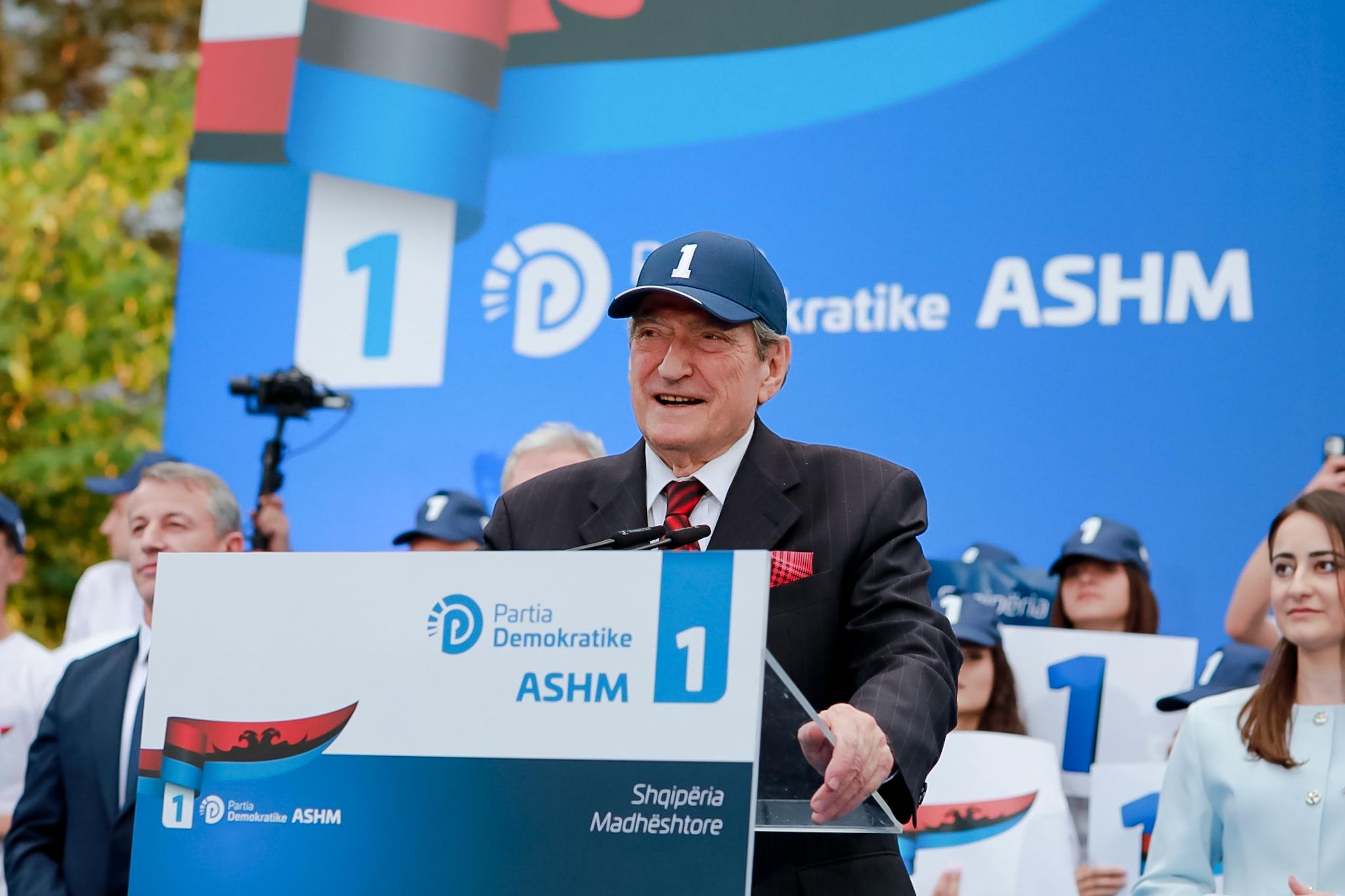Democratic Party orders total silence on $6 million lobbying scandal as SPAK verifications begin

Photo: Sali Berisha, Chairman of the Democratic Party of Albania.
The Democratic Party (DP) has instructed its candidates and officials not to engage in any public discussions about the controversial $6 million lobbying contract in the United States. The directive, reported by Top Channel, comes amid intensifying scrutiny and an ongoing preliminary investigation by Albania’s Special Anti-Corruption Structure (SPAK).
Why is this important: The DP’s internal order to avoid the lobbying topic highlights the party’s strategic concerns about the political fallout just days before the May 11 elections. It also underscores the sensitivity of the issue, as SPAK examines the contract’s financial and legal implications.
Context: According to Top Channel, DP circulated an internal communication memo urging candidates to focus exclusively on the electoral program and avoid all media debates about the lobbying agreement.
“Do not engage in media debates about lobbying in the United States,” the party instructed. The message emphasized that the media’s focus on the $6 million contract, allegedly ordered by Prime Minister Rama, is an attempt to distract public attention from the government’s record over the past 12 years.
DP claimed that its campaign, bolstered by American strategist Chris LaCivita and legal support linked to former President Donald Trump, remains strong and that the issue of the lobbying contract had been definitively addressed in a public statement the previous Saturday.
The party’s position is that the lobbying services are fully financed by Albanian-Americans through the “Make Albania Great Again” foundation, with no direct financial obligation for DP itself.
What else: Separately, Nuredin Seci — named as the guarantor of the $6 million payment — reacted briefly during an appearance on Top Channel saying he was on vacation with his family and unavailable for comment. “The contract speaks for itself,” Seci stated, adding that the arrangement is transparent and registered with U.S. authorities.
Meanwhile, SPAK has confirmed it has opened verifications into the origins of the contract and the legitimacy of its financing.
Details of the lobbying agreement: The contract, signed on April 4, commits DP to a $250,000 monthly payment over two years to Continental Strategy, a Washington-based consulting firm with strong ties to the Trump administration and the U.S. Republican Party.
Under the agreement, Continental Strategy would lobby U.S. executive and legislative branches on behalf of DP, promote democracy and anti-corruption initiatives related to U.S.-Albania relations, and advocate for lifting sanctions imposed on DP leader Sali Berisha.
Continental Strategy’s leadership includes Carlos Trujillo, a former U.S. ambassador and Trump campaign advisor; Katie Wiles, daughter of Trump’s chief strategist Susie Wiles; and Alberto Martinez, a former chief of staff to Senator Marco Rubio.
The firm’s political network extends deeply into Republican circles, suggesting that DP aimed to leverage these ties to influence decision-making in Washington.
Ethical concerns: The controversy has raised major ethical and legal issues:
The provenance of the $6 million remains opaque, with limited evidence of the “Make Albania Great Again” foundation’s activity.
DP’s refusal to publicly address the matter beyond a general statement fuels suspicions about potential violations of Albania’s political financing laws.
Critics argue that while DP campaigns on economic reforms and transparency, it is simultaneously shielding its leadership from answering serious financial questions.
Observers warn that the decision to suppress discussion may backfire, drawing even more public attention to the unresolved scandal during the critical final phase of the campaign.
What’s next: SPAK’s verification process is expected to assess whether the lobbying contract and its financing comply with Albanian law. As election day approaches, the pressure on DP to explain the deal and its implications will likely intensify, even as party leaders attempt to shift focus back to their policy platform.


